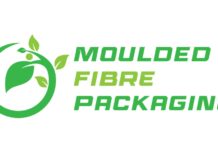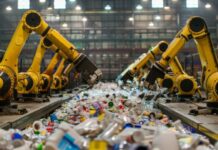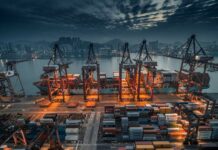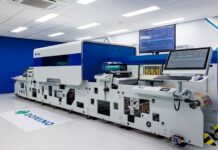According to a recent survey, the top goal for improving the environmental performance of UK FMCG (fast-moving consumer goods) companies is to increase the amount of sustainable packaging, such as paper, in order to reduce financial and reputational risk. The FMCG industry makes a substantial economic contribution to nations. But it’s also one of the main producers of garbage made of plastic, especially in packaging. Global brands have committed to commitments to eliminate conventional packaging and incorporate more sustainable materials. Many FMCG firms have embraced sustainable packaging. Many, meanwhile, still haven’t made the whole transition from traditional plastic packaging to more environmentally friendly options on a large scale. The future of flexible packaging in the industry is examined in a new research by Aquapak Polymers, located in Birmingham, England. It also looks at the materials that are expected to succeed, when they will do so, and any identified obstacles that need to be removed.
The majority (92%) of UK packaging experts responsible for packaging R&D, technology, design, and sustainability for FMCG brands plan to completely stop using plastic in their consumer packaging, according to a study titled FMCG flexible packaging: accelerating the move from plastic to paper, which is based on research done by PureProfile with 100 packaging experts this past March. The analysis reveals that the most popular alternative materials are paper and paperboard, with novel polymers, bioplastics, and multi-materials coming in second and third, respectively, from the Rethinking Materials Innovation and Investment Summit held in London earlier this year.
The study finds that switching to paper packaging is more important than increasing operational energy efficiency, protecting biodiversity, lowering the carbon footprint of logistics, and using less water and garbage. The least popular option was reducing or completely banning plastic usage.
With two thirds rating it as high and 31% calling it as “average,” the majority of respondents said that there is a serious danger to their company if the environmental performance of the packaging used is not improved. The danger was deemed low by around 3%. Sixty-seven percent of respondents said they could miss ESG and sustainability targets, sixty percent said they would lose market share to competitors, and nearly three quarters (70%) said their company faced the risk of reputational damage if they did not improve the environmental performance of their packaging.
The majority of respondents (87%) want a quicker transition from traditional plastics to alternative materials. Though there is a determination to abandon plastic, the change will take time; according to packaging experts, 27% anticipate it will happen by 2027, 35% by 2028, and 28% by 2029. Only 31% of respondents thought their company’s transition to new packaging materials was moving too slowly, 58% thought it was “moderate,” and 11% thought it was moving quickly.
According to the study, 53% of respondents cited the higher cost of alternative packaging, 50% mentioned the availability of alternative materials, and 46% stated that ensuring product protection and functionality remains the same are the main obstacles to using more environmentally friendly options. According to the research, when asked what major factors would encourage the FMCG industry to develop and implement new materials more quickly, 70% of participants said that setting more aggressive recycling goals was essential, 62% desired to see higher investment in new materials, and 54% indicated that greater cooperation was required to speed up R&D. While 47% of respondents indicated that stricter environmental regulations via the taxation of materials with poor environmental performance were crucial, half of respondents said that an industry-wide commitment to transition away from traditional plastic was required.
Dr. John Williams, chief technical officer of Aquapak, commented on the findings, saying, It is really encouraging to see that FMCG brands are prioritizing the transition to sustainable packaging materials, like paper, and that this is a board-level decision when it comes to improving their environmental credentials and mitigating the reputational and financial risks of not doing so. Eliminating inappropriate plastic consumption is a long-term goal that must be balanced while considering substitute materials and waiting for regulations and objectives to become clearer.




























